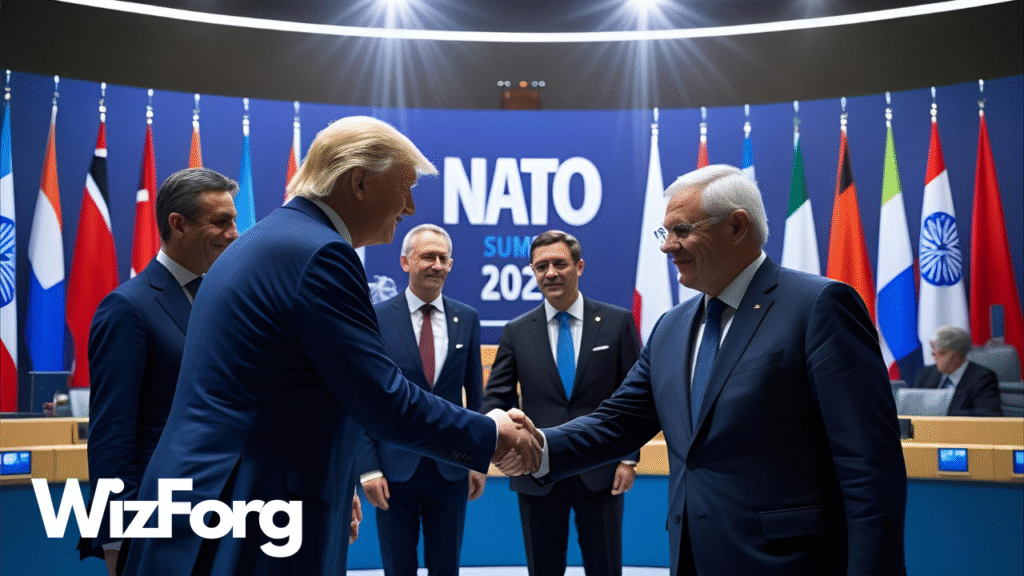The Hague, Netherlands — The 2025 NATO Summit, held from June 24 to 25 in The Hague, marked a pivotal moment for the alliance as global tensions continue to rise. With heads of state and defense ministers from all 32 member countries in attendance, the summit focused on reinforcing collective defense, increasing military spending, and responding to escalating threats from both state and non-state actors.
Key Outcomes and Agreements
🔹 1. 5% GDP Defense Commitment
In a historic move, NATO members agreed in principle to allocate at least 5% of their GDP to defense spending by 2030 — a significant increase from the current 2% guideline. This increase is aimed at enhancing readiness, rapid deployment capabilities, cyber defense, and modernization of equipment, thereby strengthening the alliance’s collective defense and deterring potential aggressors.
🔹 2. Support for Ukraine
Ukraine remained a central topic. The alliance reaffirmed its unwavering support for Ukraine, a country facing ongoing conflict and aggression from Russia. In addition to the €50 billion in non-lethal aid and advanced weapons systems, NATO also announced the creation of a Permanent Liaison Group in Kyiv to coordinate defense logistics and intelligence sharing, further solidifying its commitment to Ukraine’s security.
🔹 3. Collective Cybersecurity Strategy
With cyberattacks on the rise, the summit launched NATO’s first Cyber Defense Integration Framework. This framework ensures that member states coordinate their responses to cyber threats, particularly those originating from Russia, China, and other rogue actors. It includes measures such as information sharing, joint exercises, and the development of common cyber defense standards, all aimed at bolstering the alliance’s cybersecurity.
🔹 4. Indo-Pacific Dialogue Deepens
Recognizing the evolving global landscape, NATO invited Japan, South Korea, Australia, and New Zealand to attend as observers. The alliance emphasized the need for closer cooperation with Indo-Pacific partners in response to rising Chinese influence and the militarization of artificial intelligence.
Stoltenberg’s Final Address as NATO Chief
In his final summit as NATO Secretary General, Jens Stoltenberg was honored with a standing ovation for his decade of leadership. In his farewell remarks, he said:
“This alliance has never been more united, capable, or vital to global security. We stand ready for any challenge, from land to sea, from cyber to space,” Stoltenberg reassured in his final address as NATO Secretary General.
Stoltenberg’s successor, expected to be announced in early July, will inherit an alliance under pressure but one that is more ambitious than ever.
Global Reactions
- Russia dismissed the summit as “hostile posturing,” accusing NATO of fueling tension in Eastern Europe.
- China warned against “bloc confrontation” and called for NATO to “stay within its geographic mandate.”
- The European Union expressed full support for NATO’s resolutions, particularly the move toward defense sustainability and cybersecurity.
Looking Ahead
The next NATO summit is tentatively scheduled for 2026 in Istanbul, Turkey. Between now and then, the alliance will focus on integrating new technologies, strengthening collective deterrence, and deepening ties with global partners, offering hope for a more secure future.
As the global balance of power shifts, NATO’s actions in The Hague reaffirm its position as the backbone of Western defense and diplomacy.
Stay informed with more in-depth coverage on global defense, politics, and innovation.
Visit our homepage for the latest insights: wizforg.com



